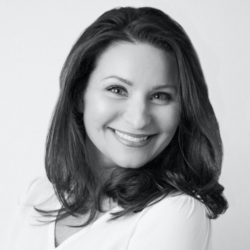Grammy-Nominated Singer-Songwriter Jewel Opens Up About Her Painful Past—And What It Took to Heal
Updated: Nov. 11, 2022

Jewel reveals how she survived homelessness and abuse, and how it inspired the songs we knew by heart in the '90s as she celebrates this week's launch of her national mental health campaign.
If I could tell the world just one thing, it would be that we’re all OK.
Jewel released her single “Hands” in 1998—but like many of her early songs, the message might resonate even more today than it did 25 years ago. Since Pieces of You debuted in 1995, Jewel’s been known for the emotional honesty in her music…but what even longtime fans might not realize is that she’s also created a conversation around mental health in a way that’s been remarkably hands-on.
This week, the four-time Grammy-nominated, multi-platinum singer-songwriter announced the launch of her #NotAloneChallenge in partnership with iHeartRadio. A representative for Jewel said in a press release: “The mission of the #NotAloneChallenge is to remind people they are not alone during the holidays, to offer free mental health resources, and to raise funds to make mental health available to those in need, including the nearly 50% of Americans that do not have access to mental health resources and tools.” More than 120 thought leaders, executives, celebrities, athletes, and mental health specialists have joined the campaign.
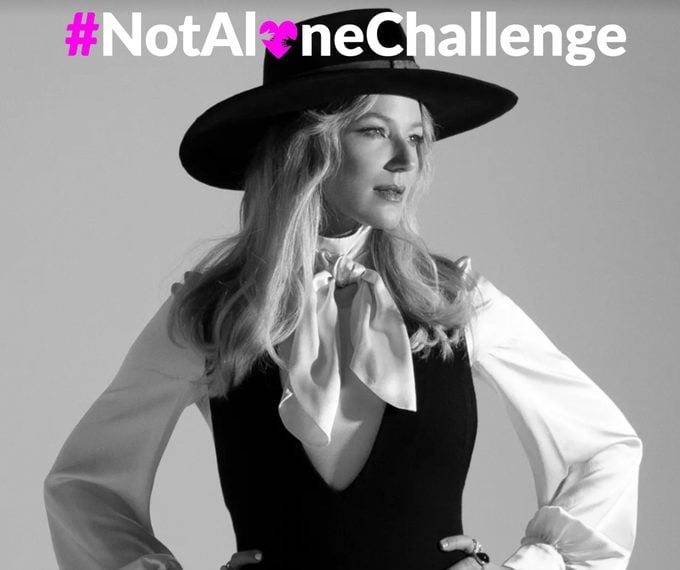
“Maybe a lot of people don’t realize I’ve been doing this work for 20 years,” Jewel, 48, told The Healthy @Reader’s Digest in a phone conversation this week. “My goal was to see if these tools that I invented for myself would work for other kids, because not everybody has access to therapists or traditional support systems—and there should still be real tools that really work, whether you have money or not.” Jewel is a co-chair of the Las Vegas-based Inspiring Children Foundation, with three homes for children (“We have one of the highest college graduation rates of any school,” she says) and also recently helped to launch Innerworld, which she calls “the very first metaverse wellness clinic.”
Jewel opened up about what she called her “second career” as a mental health advocate, and the powerful reasons she still relates so personally to the struggles many people are facing today: “I’ve fought so hard to heal.”
What Is Agoraphobia? Here, Psychologists Explain Why It’s Suddenly So Common
The Healthy: You’ve been a crusader for compassion since the start of your career. Why has it been so important for you to bring mental health to the forefront?
Jewel: Yeah, music’s definitely always been a reflection of my own journey of trying to understand that happiness was a learnable skill. Moving out at 15, being homeless by 18—and just the interesting rewrite in the ’90s of journalists saying I was living in my car for my dream, when I was living in my car because I wouldn’t have sex with a boss, and he wouldn’t pay me. I told people that story in the ’90s, but no journalist even mentioned it and somehow it always got magically rewritten: “That spunky kid living in a car to pursue her dreams.”
I was trying to get another job, and then my car got stolen. I was shoplifting a lot during that period of my life—it was always food. But one day I was in a clothing store, and I was trying to steal a dress. It was just this beautiful, clean, pretty girly thing. Everything I felt like I wasn’t. And I was shoving it down these baggy pants and I caught my reflections in the mirror, and I looked like a statistic … And for some reason I remembered this quote that said, “Happiness does not depend on who you are or what you have. It depends on what you think.”
And so I wanted to look at this idea of happiness as a learnable skill. Where would I learn it?
Jay Shetty and Wife Radhi Share Their Secrets to Mindful Eating (and Drinking)
The Healthy: Your team told us “Hands” was actually written during that period about the way you learned to manage your thought patterns.
Jewel: I wanted to see if I could turn my life around one thought at a time. And so I developed this sort of, I don’t know, reverse-engineering. … And so for two weeks, my whole life plan was just to write down everything my hands do: I picked up a glass of water or, I opened a door. (Laughs) It was silly.
So at the end of two weeks as I sat down to look at that, I realized that for two weeks I hadn’t had a panic attack—and I didn’t even notice. What I’d stumbled on was being present, basically. “Mindfulness” wasn’t a word, the word “present” certainly wasn’t on my radar. But I had stumbled onto this idea of a mindful exercise, or forcing myself to be so present that I didn’t have time to worry about something else.
And the experience of that is what led me to writing “Hands,” just to say, “Right, I’m not gonna be a victim, no matter what happens to me in my life. My hands are my own, nobody’s going to make me steal. That’s actually me choosing to do that. And what actually matters is kindness.”

The Healthy: So that’s where the line, In the end, only kindness matters came from—you were talking about kindness before it was a buzzword.
Jewel: As a homeless person, people would walk across the street so they didn’t have to look at me. Being reduced to something that was subhuman—seeing people treat a dog kinder than they would treat me just made me realize that the difference between doing well in a day, and not, was honestly just direct eye contact and a smile.
7 Major Health Effects of Expressing Gratitude
The Healthy: How does today’s conversation about mental health strike you as a parent? (Jewel is mom to son Kase, 11.)
Jewel: Emotionally we have to equip ourselves and our children with multiple tools for multiple problems—whether it’s sadness, whether it’s grief, whether it’s bullying, whether it’s overwhelm. I think that mental health is just learning how to navigate the fact that we have thoughts and feelings, and we live in a really distracted society. And it’s across every demographic. It’s CEOs alongside troubled kids, it’s everyone. It’s wealthy kids. Our world is inducing a lot of anxiety in people. We have to have better solutions because we just can’t keep going with this rate.
Misery is an equal opportunist. It doesn’t care if you’re black, or white, or poor, or a CEO, or famous, or a mom, or not. It really has much more to do with the family systems that we inherit, and the emotional languages that we inherit. If you’re going to learn a new emotional language, that takes education—and education typically costs money in our country. So in that way, happiness can suddenly become elitist. And that’s just unacceptable.
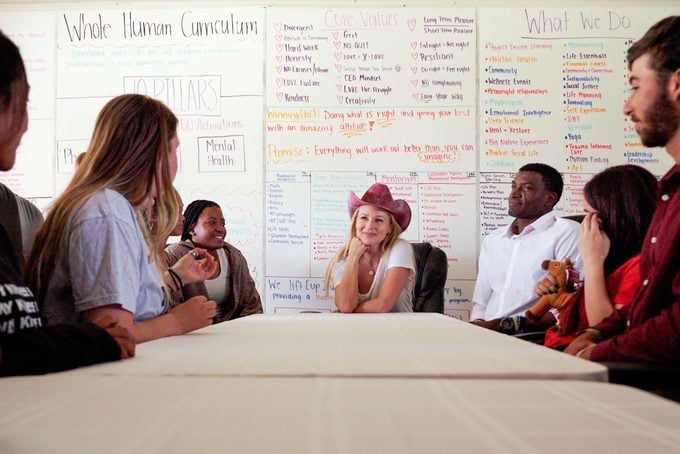
The Healthy: For decades, women have looked to you for inspiration. A lot of us have grown up with you—and even just on social media, you’re as fierce as ever. How does the new album, Freewheelin Woman, play to that?
Jewel: I really wanted this album to just be—I feel really empowered. I’ve fought so hard to heal. I’ve fought so hard for the liberty in my life. It was hard-won. So I’m really proud. I’m proud of my life. I’m proud of what I’ve built. I’m proud of the choices I made. And some of them are really unconventional: quitting for years at a time, because I don’t think you can have it all. And the last seven years, my son really needed me.
I feel honestly that I’m at the height of my singing power, I feel like I’m at the height of my talent and my writing power. Again, just to have a—I don’t know what the right word would be—an outrageous authenticity. Not trying to be a version of sexy, or an old version of myself. But just some days I feel myself. (Laughs)
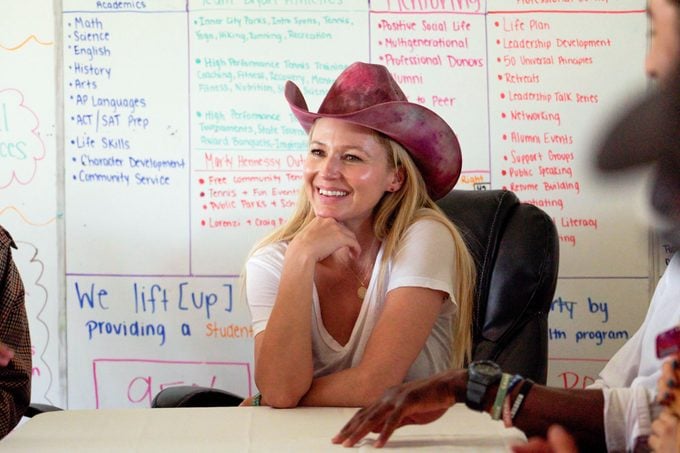
The Healthy: Thanks for the photos you shared with us. This one inside Neil Young’s studio—what was going on in your life that we might not have known about?
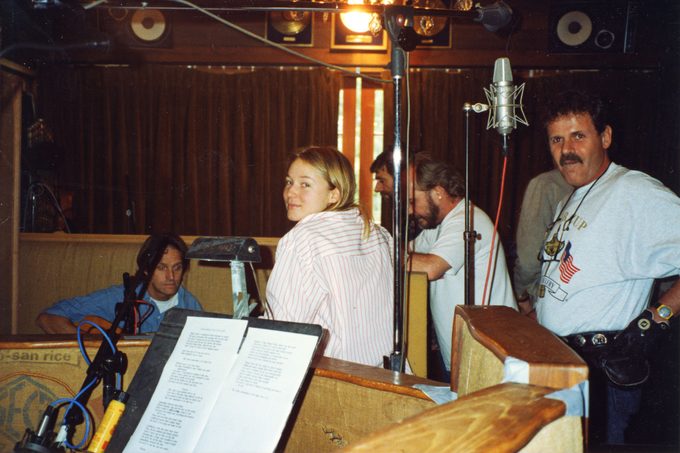
Jewel: Let’s see, I think I was 18. I got discovered while I was homeless. I turned down a million-dollar signing bonus. Because I read that it was a loan, and that I would have to pay it back through record sales, which meant I would have to have a very successful album right off the bat. And that was not the kind of pressure that I was wanting.
And because of the type of bidding war that was [happening], they gave me access to every amazing producer there was. But they all wanted to change what I was and who I was. I was a very awkward—just learning guitar—young girl. And so instead, I chose a guy that I noticed was a co-producer on [Neil Young’s album] Harvest and [the single] “Harvest Moon.” When we met, he liked my eight-minute-long songs, like “Painters” or “Nicotine Love.” And I just wanted the album to be a really honest representation of who I really was. I didn’t want to pretend to be more talented or more polished than I was. And that’s what I did. I got invited up to go to [Neil Young’s ranch] not because they knew me, but just because of Ben Keith, the producer. And it was an incredible process.
The Healthy: What’s the self-care practice you refuse to skip?
Jewel: I meditate every day. I actually will put that ahead of everything else, like exercise. Not that exercise isn’t important—it’s just that if I’m really, really slammed that day, I will make sure I take an hour to reflect and go inward. Sometimes it’s writing [in addition to] meditating—just where I go to have time to check in with myself.
Follow The Healthy on Facebook, Instagram, and Twitter. Keep reading:
- Howie Mandel Details His Obsessive-Compulsive Disorder: “People Need to Know They Are Not Alone”
- This Smart COVID Test Should Be on Your Radar Before the Holidays, a Health Reporter Says
- Can’t Sleep? A New Study Found This Solution Was More Powerful Than Melatonin
- 7 Essentials Fellow Shoppers Say You Need For a Cozy Mental Health Night at Home



















